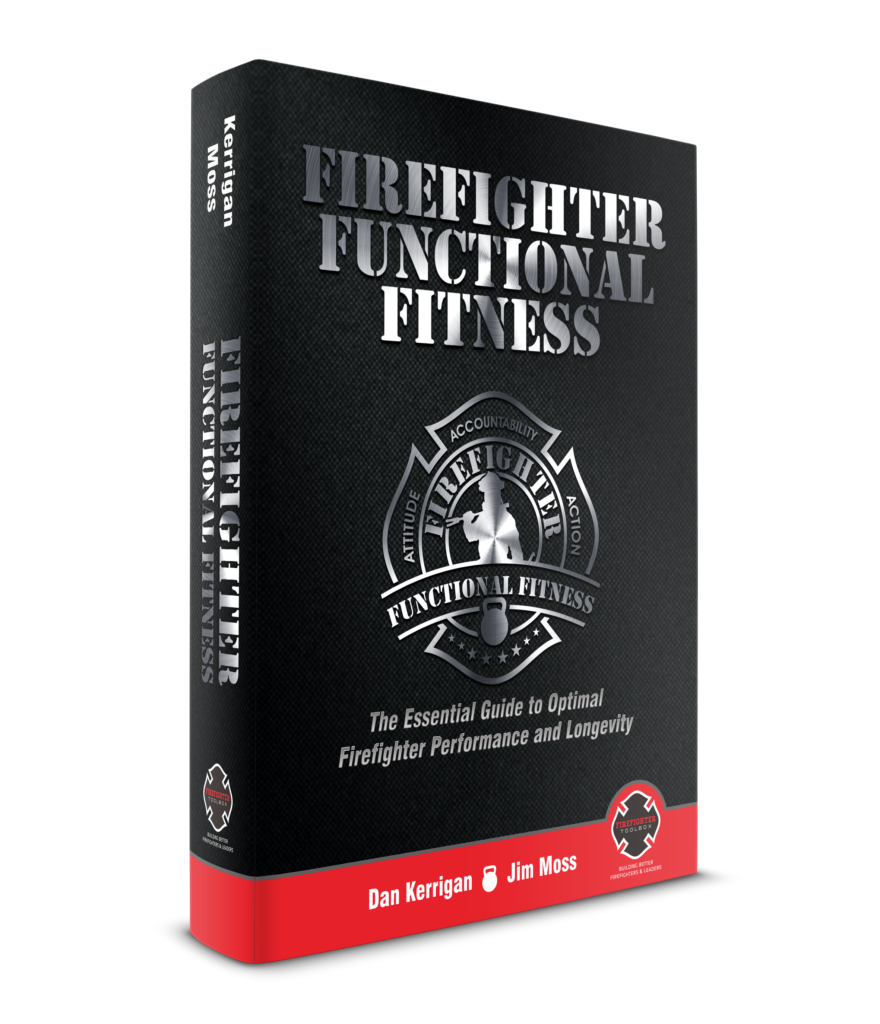FOREWORD
By Sara A. Jahnke, Ph.D
(Excerpt from The Foreword of The Firefighter Functional Fitness Book)
Firefighting is a team activity. While health choices are arguably personal for the average civilian, the fire service is different. Â As occupational athletes, the choices individual firefighters make directly impact the risk other members of their crew face on the fireground. Â Choosing to be âœfit for dutyâ is not just about personal performance. Â It is about your safety and the safety of your crew. Â It is about personal attitude, accountability, and definitive actions.
As a passionate advocate for firefighter health and wellness, much of my research is focused on identifying causal factors in firefighter sudden cardiac events and developing interventions to reduce their frequency.  It is clear that research is increasingly identifying health risk factors as key predictors of injury and death on the fireground, making a focus on fitness and wellness central to a firefighterâ™s job description.
Obesity and low fitness have been found to be related to injury, cardiovascular events, and even non-cardiac fatalities incurred in the line of duty. I believe that taking a proactive approach to your performance on the fireground means not only training in fire behavior and fire tactics but training the most important component of the fireground responseâ”the firefighter.
While improving fireground safety continues to be an ongoing and valiant cause, the focus cannot solely be at the operational level. Â As a firefighter, focusing on personal and crew fitness for duty simply must become part of the fire service culture if we are to decrease line-of-duty deaths and injuries.
This book brings together Dan and Jimâ™s knowledge of health and fitness, experience on the job and their genuine passion for improving the health of the fire service family.  A unique benefit that takes this resource to the next level is that it moves beyond the basic science and academic approach to fitness.  By using their years of service and fireground experience as their foundation, they are able to distil out the important details that firefighters need to know about functional fitness.
Their experience in the varying levels of fitness of their fellow firefighters has resulted in a practical format that accounts for individual variation and needs, making fitness attainable for firefighters at any starting point. From the beginner to the trained occupational athlete, each section has usable action steps for every firefighter to begin making changes today, while also providing a roadmap for continued success.
Firefighters who want to improve their health and fitness can easily assess where they are in the process, identify their first steps, lay out a plan for success, and get started. While certain risks are inherent to the fireground and any emergency response, firefighters can and should take proactive actions to reduce their health risks considerably.
Firefighter Functional Fitness: The Essential Guide to Optimal Firefighter Performance and Longevity is for any firefighter who cares about their own health, the health of their crew, and wants to improve their own fireground performance. It is essential reading for any firefighter that wants to decrease their risk of injury or death on the fireground and enjoy their retirement without disability. Lastly, it serves as the perfect resource to begin, revisit, build, expand, and grow as progress is made.

Sara A. Jahnke, PH.D.
Director
Center for Fire, Rescue, and EMS Health Research
National Development and Research Institute, Inc.
Sara A. Jahnke, Ph.D. is the director of the Center for Fire, Rescue, and EMS Health Research at the National Development and Research Institutes, Inc. Dr. Jahnke has served as the principal investigator of two large-scale studies of the health and readiness of the U.S. fire service funded by the Department of Homeland Security.
She currently serves as the principal investigator of a study on the health of women firefighters and as a co-investigator of several studies focused on fitness, nutrition, and health behaviors in both firefighters and military populations.
A passionate advocate and change agent, Dr. Jahnke works regularly with the International Association of Fire Chiefs, the National Fallen Firefighters Foundation, the International Association of Firefighters, the American Heart Association, and other national organizations to help improve firefighter health and fitness.
Click Here To Read the Introduction of Firefighter Functional Fitness
Click Here to Read Chapter 1 of Firefighter Functional Fitness

